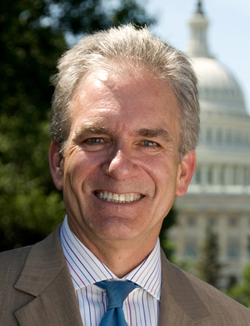By Bob Allen
The Obama administration proposed a broader opt-out Feb. 1 for religious organizations that object to mandated coverage of contraceptives in employee health care plans, an effort to alleviate religious-liberty concerns behind a number of lawsuits challenging the Affordable Care Act, also known as Obamacare.
New rules, subject to an open-comment period through April 8, would allow nonprofit religious employers like faith-based hospitals and universities to opt out of the contraceptive mandate as a matter of conscience. Their employees would instead receive a stand-alone private insurance policy to provide contraceptive coverage at no cost.
“Today, the administration is taking the next step in providing women across the nation with coverage of recommended preventive care at no cost, while respecting religious concerns,” said Health and Human Services Secretary Kathleen Sebelius. “We will continue to work with faith-based organizations, women’s organizations, insurers and others to achieve these goals.”
The new guidelines would apply only to religious nonprofits, and not for-profit businesses like Hobby Lobby that are subject to federal anti-discrimination laws that don’t apply equally to religious organizations.
While emphasizing he had not yet read the full 80 pages of new guidelines, Brent Walker of the Baptist Joint Committee for Religious Liberty reacted with a favorable first impression.
 “The proposed rules signal an on-going effort by the administration to provide for the preventive health care needs of women employees while seeking to honor the conscience objections of religious employers and their affiliates,” Walker said. “The proposed rules laudably clarify and simplify the definition of religious organizations and affiliated nonprofits, and seek to provide an acceptable alternative for self-insured employers.”
“The proposed rules signal an on-going effort by the administration to provide for the preventive health care needs of women employees while seeking to honor the conscience objections of religious employers and their affiliates,” Walker said. “The proposed rules laudably clarify and simplify the definition of religious organizations and affiliated nonprofits, and seek to provide an acceptable alternative for self-insured employers.”
The Becket Fund for Religious Liberty said the new proposals do nothing to protect the rights of family businesses like Hobby Lobby, who also find some of the covered birth-control methods immoral and oppose them on religious grounds. The group said it continues to study the proposal’s impact on lawsuits it is handling for nonprofit religious organizations like East Texas Baptist University and Houston Baptist University.
Catholic schools like Ava Maria University and Belmont Abbey College have filed lawsuits because artificial birth control goes against teachings of the Roman Catholic Church. Baptist schools including Louisiana College, meanwhile, don’t oppose contraceptives outright but believe some of the FDA-approved birth-control methods take effect after fertilization, making them in fact a form of abortion, which the Southern Baptist Convention opposes.
The White House has said from the beginning the administration is sensitive to religious-liberty concerns of employers but committed to coverage for preventive care that includes contraceptive coverage with no co-pays as a matter of women’s health.
“We need a both/and solution to these important policy issues,” Walker said. “Women’s health care is promoted; religious liberty is protected.”
The administration said it is still working out how to handle self-insured group health plans like those offered by the Southern Baptist Convention’s GuideStone Financial Resources, so that workers receive contraceptive coverage at no cost but eligible organizations don’t have to contract, arrange, pay or refer for such coverage.
The proposal amends rules issued in 2011 that for purposes of exemption defined a religious employer as one that has the inculcation of religious values as its purpose, primarily employs persons who share its religious tenets, primarily serves persons who share its religious tenets and is a church or an integrated auxiliary, convention or association of churches.
After receiving more than 200,000 comments both for and against, the administration adjusted the criteria to ensure that an otherwise exempt employer plan is not disqualified because the employer’s purposes extend beyond the inculcation of religious values, or because the employer serves or hires people of different religious faiths, and to accommodate religious institutions of higher education with religious objections to the contraceptive mandate.
